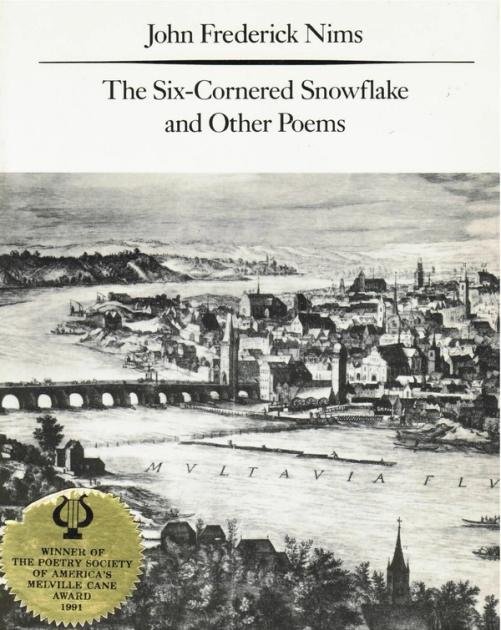The Six-Cornered Snowflake And Other Poems
Poetry by John Nims
As a preeminent modernist poet and translator of the classics, John Frederick Nims’s work is an elegant fusion of contemporary sensibility with formalist experimentation. But form, for this writer of meditative verse, is only a helpmeet to the quintessential content of the poem, the meaning that gives it value in our time and, one hopes, beyond. Concerning the formal elements of poetry, Nims comments: “One might say they are like the scaffolding at a construction site, meant to be thrown away and not regarded once the building is completed.” In his newest collection, The Six-Cornered Snowflake, his poems range through an astonishing variety of complex structures: the shaped-poem of the title work, the sestina, the vocal “Pindar’s lattice” of the “First Olympian Ode,” the nervous galliambics of “Catullus 63”—just to name a few. As William Pritchard, writing for The New York Times Book Review, so aptly observed, “Mr. Nims has consistently had the nerve to be interested in what language could be made to do, rather than what the psyche would be made to reveal.”
Paperback(published Oct, 01 1986)
- ISBN
- 9780811211444
- Price US
- 14.95
Clothbound(published Oct, 01 1986)
- ISBN
- 9780811211437
- Price US
- 14.95
- Page Count
- 64

